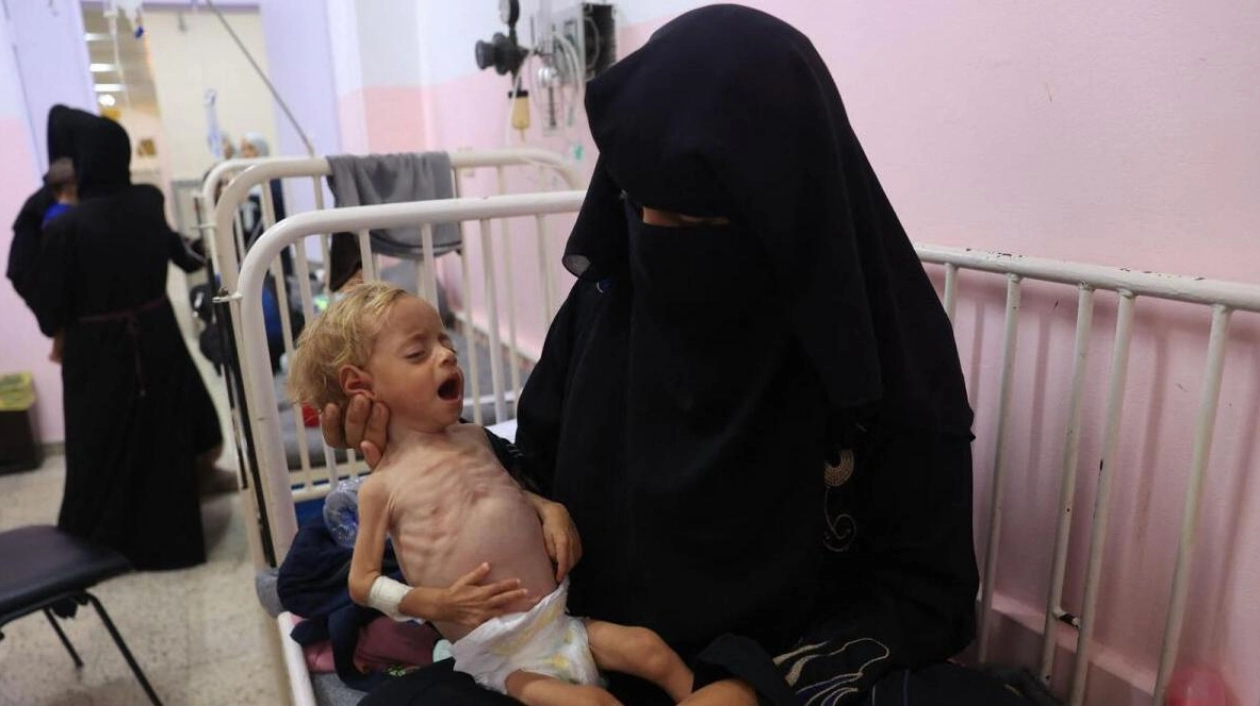Israel has charged the expert panel with "disseminating misinformation." Although the United Nations has not formally declared a famine in Gaza, the experts have observed that 34 Palestinians have perished due to malnutrition since Hamas's October 7 assault, which ignited the conflict. Israel has enforced a blockade on the Hamas-governed Gaza Strip, restricting the inflow of aid and commercial goods. Jaber and aid organizations operating in Gaza report that the scarce food and essential supplies now available in the markets are exorbitantly priced. Jaber mentioned that sugar is selling for approximately 100 Israeli shekels ($27) per kilo, rendering it—and his cherished tea—an unaffordable luxury. Northern Gaza is experiencing particularly severe hardships. The UN humanitarian office OCHA reports that commercial trucks have been unable to deliver goods there for months. "We live a life of disgrace and humiliation," Jaber stated. The shortages include a "near total absence of protein sources," with only a few locally produced vegetables available at prices too high to afford, according to OCHA's Monday report. In Deir al-Balah, the excessive cost of fuel, at 120 shekels per liter, has halted trucks from delivering drinking water, according to Maysa Saleh, a Norwegian Refugee Council (NRC) employee in the central Gazan city. The price of shampoo has skyrocketed to $26, and soap to $8. "Most of us resort to showering with homemade dishwashing liquid," Saleh said. "Any washing is done with salt water from the sea." She noted a significant rise in diseases such as Hepatitis C. "Regrettably, with the lack of healthcare and sterilizing and cleaning materials, people's health is in jeopardy." Thousands of aid-laden trucks are still stranded in Egypt or at the Kerem Shalom border crossing with Israel, according to NRC. "Due to Israeli restrictions and the breakdown of law and order, NRC has not received any aid at its sites since May 3," the group stated. Israel has consistently denied obstructing aid to Gaza and has faulted the UN for not effectively distributing supplies. Saleh, in Deir al-Balah, reported that families displaced by bombing campaigns in other parts of Gaza have arrived in "deplorable conditions" after enduring long walks while evading attacks. Nearly all of Gaza's 2.4 million population has been displaced by the war, many more than once, according to UN agencies. Those flocking to Deir al-Balah can anticipate little relief. On Tuesday, the Barood family had just completed assessing the damage to their home when they were awakened by the roar of bombing and children's screams. "We were sleeping at one o'clock and suddenly we heard the sound of explosions," Eyad Barood recounted. The family rushed into the street to find his uncle's house demolished and his aunt and cousin killed. "We are innocent," Randa Barood declared. The Gaza war erupted following Hamas' October 7 attack on southern Israel, which resulted in the deaths of 1,195 people, predominantly civilians, according to an AFP tally based on Israeli figures. The militants also captured 251 hostages, 116 of whom are still in Gaza, including 42 whom the army claims are deceased. Israel's retaliatory offensive has claimed the lives of at least 38,243 people, mostly civilians, according to data from the health ministry in the Hamas-run territory.

Text: Lara Palmer
10.07.2024
Gaza Faces Severe Shortages and High Prices for Basic Supplies Amid Ongoing Conflict





